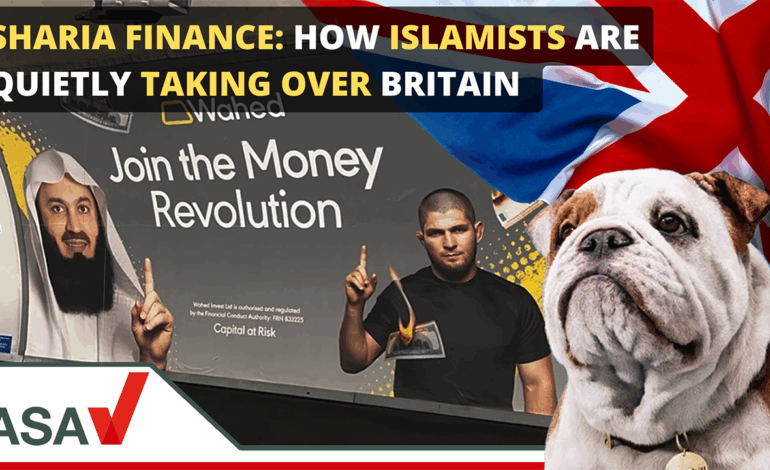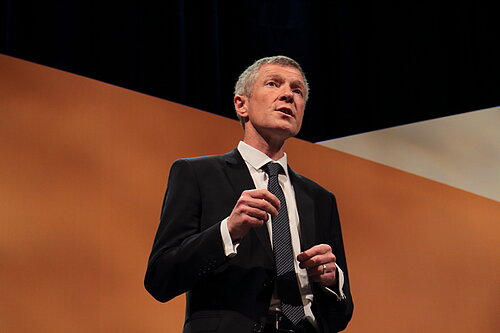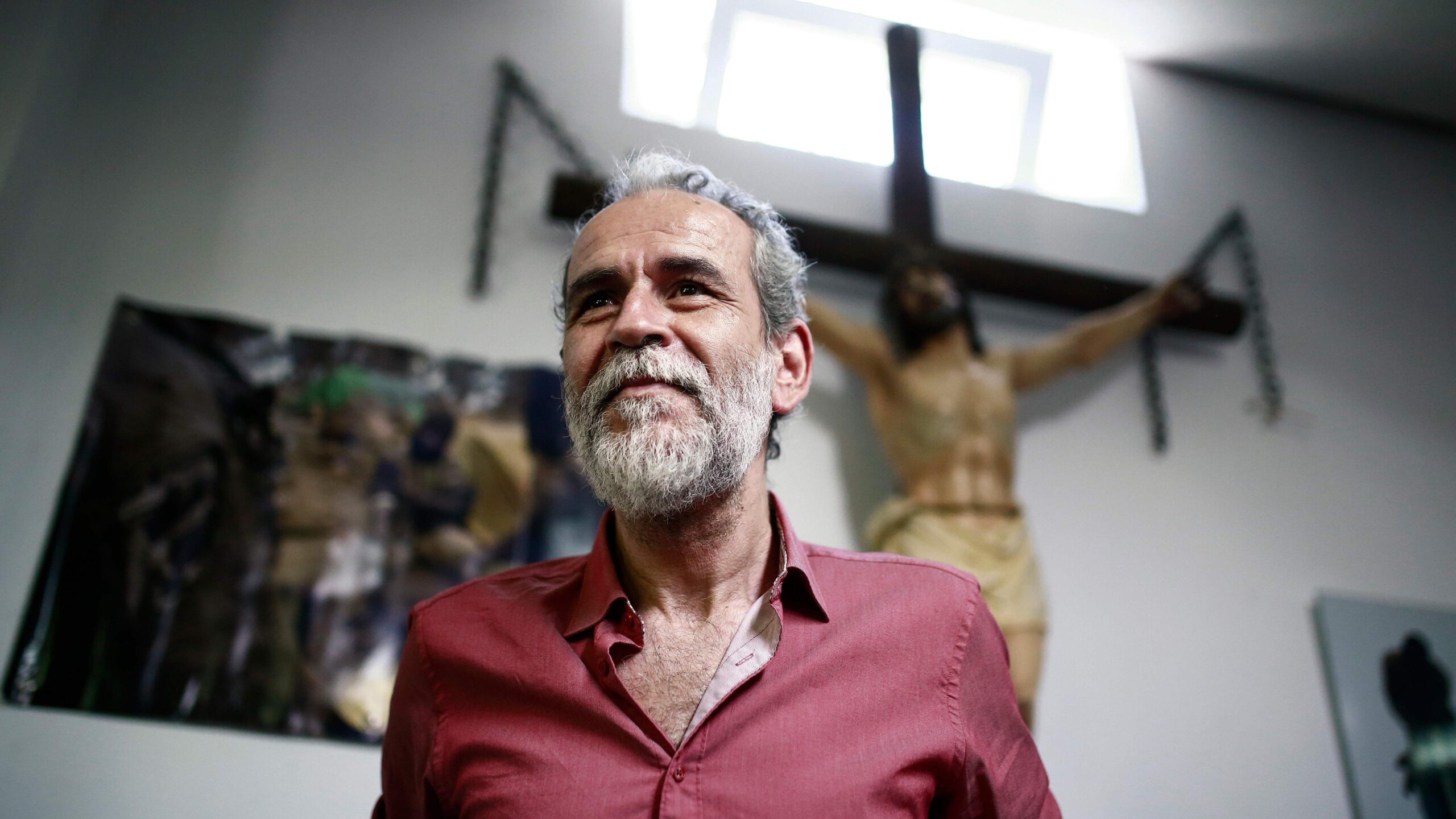Sharia Finance: How Islamists Are Quietly Taking Over Britain

An ad campaign by an online investment company predominantly serving Muslims was
banned by the United Kingdom’s advertising watchdog for featuring images of
Euros and US dollars, as well as the words “The United States of America” in
flames alongside calls to “join the money revolution.”
> Guardian reports: “UK watchdog bans ‘offensive’ adverts showing banknotes in
> flames. ASA acts on poster campaign by Wahed, urging people to join a ‘money
> revolution’, after receiving 75 complaints.” See: https://t.co/JiLU8NSbt8
> [https://t.co/JiLU8NSbt8]
>
> — CIoJ (@CIoJournalist) January 8, 2025
> [https://twitter.com/CIoJournalist/status/1877125067093516312?ref_src=twsrc%5Etfw]
Wahed Invest Ltd, a New York-based online financial and investment technology
company, ran six posters for their ad campaign on various Transport for London
(TfL) services, including the London Underground and buses, last September and
October 2024.
The posters featured dollars, including the words “The United States of
America,” and euros on fire with accompanying text stating “Join the Money
Revolution.”
The Advertising Standards Authority (ASA), the UK agency responsible for
regulating ad campaigns in the country, said it received 75 complaints arguing
that the ads were offensive. The ASA added that visitors from the United States
and eurozone countries could have seen them.
> Welcome To Sharia Britain
>
> Islamic Banks are ran in compliance with Sharia Law. Meaning they don’t charge
> interest. pic.twitter.com/lxdEHvb78T [https://t.co/lxdEHvb78T]
>
> — James Goddard (@JamesPGoddard90) October 20, 2024
> [https://twitter.com/JamesPGoddard90/status/1847882069608718338?ref_src=twsrc%5Etfw]
Therefore, the watchdog banned Wahed’s ad campaign, concluding it was likely to
cause serious offense, further arguing that the advertisement’s appearance on
London transport was an untargeted medium and they were likely to be seen by
travelers and vacationers.
“Although we acknowledged Wahed Invest’s view that they had not directly
criticized a specific group and that depictions of burning banknotes were
commonly encountered, we considered the burning of banknotes would have caused
serious offense to some viewers,” the ASA said.
Wahed responded to the ASA’s investigation by saying that their platform allowed
predominantly Muslim consumers to invest in a manner that aligned with their
Islamic faith and values. One major component of this was not charging interest
on loans, which is also commonly seen in Sharia-compliant financial institutions
and platforms.
> Is everybody still ok with sitting on the sidelines ?
>
> — Oh Winston (@B29592000) October 10, 2024
> [https://twitter.com/B29592000/status/1844400767874236915?ref_src=twsrc%5Etfw]
The company further argued that burning the banknotes was designed to powerfully
illustrate that when inflation grew faster than the rate of savings, money was
akin to “going up in flames.” It also believed that all viewers of the ads, not
just Muslims, would have understood that expression, and the campaign was not
meant to target or criticize specific groups.
“Charging people to borrow money was once called exploitation. Sadly, that
perception has changed, and now interest has caused a massive wealth gap,
enriching the few while the majority get poorer. Join the growing community
moving their money to a fairer system,” the poster also said.
Launched in New York City, United States, in 2017, Wahed Invest is backed by oil
company Saudi Aramco and French soccer player Paul Pogba. Umar Suleman, the
firm’s global head of risk and Sharia, runs a “Sharia scholars program” at the
Islamic Finance Council UK (UKIFC) and advises some other Islamic financial
technology startups.
> The company is probably a front for money laundering
>
> — UKPROUDGUY #anglophobia (@ukbimale1971) October 11, 2024
> [https://twitter.com/ukbimale1971/status/1844748505157452054?ref_src=twsrc%5Etfw]
The firm also became controversial for hiring several British Islamist figures,
such as Sir Iqbal Sacranie and Sadiq Dorasat.








